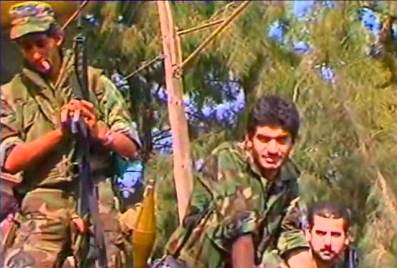Lebanon’s demonized historical battles.
Dr. Walid Phares/ Sunday, 16 August 2015
During the month of August we see many Lebanese, veterans from the Lebanese Army and from the militias of the Lebanese Front, remembering their own tales during battles fought during the Lebanon war between 1975 and 1990.
They are reminiscent of stories of survival and wounds received, stretching via oral history the remembrance of battles so that their sacrifices are not forgotten. In other nations, even in defeated ones, battles are remembered even if they were lost and even if the wars those battles were a part of were not won. The history of battles and of sacrifices remains alive and is taught in classrooms. But this is not so in Lebanon, or at least not in the camp of the defeated.
When former fighters celebrate the battle of Tal el Zaatar, fought against the PLO which was blockading East Beirut, they do not realize their politicians have gone silent on its history. They do not realize that the “agreement”—imposed by Assad’s tanks in 1990—that ended the war, ended their own history as well. The war of 1975-1976 was erased as a “filth to be eradicated from history books.” Fighters continue to celebrate inside their homes or, now, online, but the official Lebanon, including the political establishment that represented their camp has been calling these “faits d’armes” an “ugly phase of Lebanon’s history.” Tal el Zaatar deeds were sold out, along with those of other battles, against seats in the parliament and in cabinets.
The veterans have not yet made the link because their historians are silent. Worse, these military acts have been identified in Western media and academia as the acts of “barbarians, fascists, Zionists, and criminals.” And for a quarter of a century politicians allowed this dirtying of the so-called Lebanese resistance to spread unchecked. And the vets continue to believe that the world sees them as heroes, even while their bravery is coined with massacres. Every battle in the world has done abuses, every army has committed horrors, including the Christian militias of Lebanon. Where ugliness has been committed, justice must prevail, from the woods of Poland to Abu Ghraib to Sabra and Chatila.
But in the case of Lebanon, the warriors who saved half a million urban Lebanese from the snipers and jails of Tal el Zaatar armed terrorists have been lumped with the dozens of psychopaths across the sectarian lines in Lebanon who committed war crimes from the Chouf to Damour to the streets of Chekka. The fighters of Tal el Zaatar were a liberation army fighting on their own land against a terror organization. Taif or not, these are facts which have been erased from history books, and the politicians are the first to be blamed for the eradication of their people’s history.
The Lebanese Army fought a titanic battle in Souk el Gharb in August 1989. It faced off with the Assad Army and its allies at a ratio of five to one and won a proportionally major victory. The various army brigades and units, after five months of ravaging exchanges of artillery, demonstrated their ability to stop any offensive by the expeditionary corps of the Syrian regime in Lebanon. In short, it established red lines. Today, veteran soldiers and officers, some are still serving, celebrate this Mount Lebanon victory.
But alas the celebrants are alone. Their government does not celebrate Souk el Gharb. It can’t. Because their government and politicians were on the other side. For the Syrian Army and its follower cohorts who were beaten up in August 1989 by the Lebanese Army, crushed the Lebanese military in October 1990, invaded Lebanon’s Ministry of Defense, and created a new pro-Syrian government since then. The following twenty-five years eradicated the high victories by the Lebanese Army against the Assad forces and Hezbollah allies. You can’t celebrate Souk el Gharb in 2015 if you were its winner in 1989.
Had the non violent Cedars Revolution been allowed to fully win in 2005, Tal el Zaatar and Souk el Gharb would have become national history celebrations. Perhaps the military history of Lebanon would have been written in its entirety, with all parties inscribing their own parts. Today, the camp that had opposed the Syrian occupation and its terror allies has been abandoned by its own leaders and politicians. The veterans celebrate alone as the new and younger generations are disoriented regarding their own interpretation of history. They hear say about the heroic stances of their fathers and grandfathers, but cannot read about it in books. Veterans are proud of the wounds in their bodies, the last evidence of their courage in the trenches. But the country dodges their pain and forsake their sacrifices.
A quarter of century has gone by and historians are still silent. It is time for them to write.
****
Dr Walid Phares is a professor of international relations and the author of the NGO draft that introduced UNSCR 1559 resolution
http://www.cedarsrevolution.net/jtphp/index.php?option=com_content&task=view&id=3820&Itemid=2
Picture: Lebanese-Army-Souk-el-Gharb-1989-Lebwolf



















